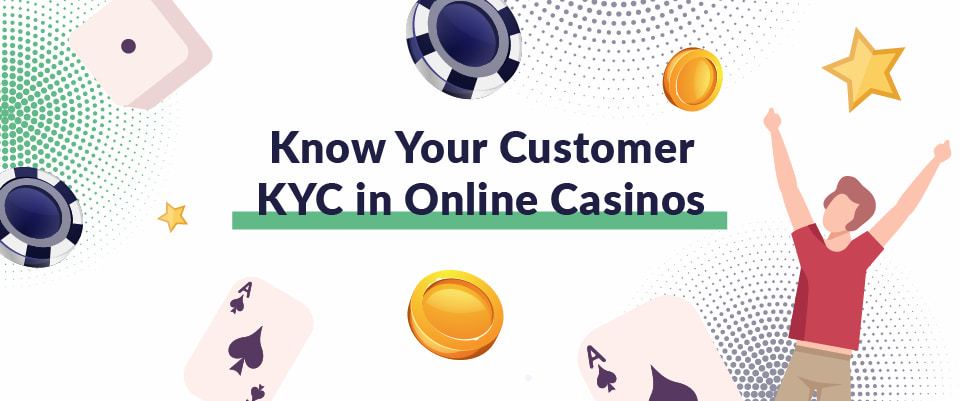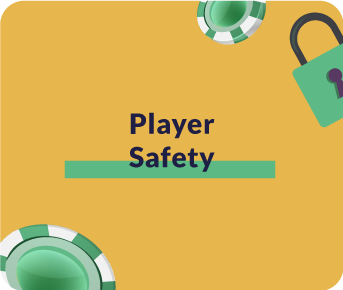Know Your Customer – 9 Key Facts About KYC in Online Casinos
The rise of online casinos in Ontario and worldwide has prompted the implementation of stringent regulations to ensure the safety and integrity of the gaming environment. Central to these regulations is the Know Your Customer (KYC) procedure.
Enabling KYC practices helps establish a secure environment where fair play and responsible gambling practices are paramount.

1. KYC (Know Your Customer) Definition
KYC, which stands for Know Your Customer, is a mandatory procedure that online casinos require their customers to complete. In this process, customers submit certain documents to verify their age, identity, address, and, sometimes, their source of income.
Many gamblers wonder why casinos ask for these details. The primary reasons are:
- Regulatory bodies, like the Alcohol and Gaming Commission of Ontario, mandate it.
- It’s a legal requirement to prevent illegal activities such as money laundering, fraud, and underage gambling.
2. What’s Involved in the KYC Process?
During KYC, you’ll provide your online casino with documents proving your age, identity, residence, and, sometimes, your income. After you upload the required documents, the casino will verify them. This verification usually finishes within 24 hours, but sometimes it might take longer.
Required Documents:
While the exact documents might differ between casinos, you’ll generally need:
- Government-issued Photo ID: This could be your driver’s license, passport, or other official ID. Some casinos might also ask for a selfie with your ID.
- Proof of Address: A utility bill, mobile bill, or rental agreement with your name and address will suffice.
- Payment Method Proof: If using a credit card, you’ll typically need images of its front and back, though some parts can be hidden. For eWallets or online banking, an unedited screenshot showing your name and details is needed.
- Source of Funds: This could be a recent pay stub or similar document.
3. When to Complete KYC?
It’s recommended to complete the KYC process immediately after registering at an online casino. Only after verification can you withdraw your winnings. If you don’t complete KYC within the casino’s specified timeframe, your account might get suspended. Be aware that updates to your account details or unusual activities might prompt a re-verification.
Speeding Up the KYC Process
To avoid delays, especially during withdrawals, complete KYC early on. If you play at multiple sites, remember that each will need its verification. Keep clear digital copies of all potential KYC documents handy, but ensure they’re stored securely.
💡 Casino Expert Tip!
Ensure that your documents are thoroughly scanned or photographed before submission. The entire document, including its corners and any dual-sided details, should be visible. If the document photo is damaged or illegible, it could prolong the verification process.
5. KYC Vs. AML: A Clear Distinction
Here are the differences between the two processes:
- KYC (Know Your Customer): Primarily focuses on verifying individual data like age and identity to prevent issues such as underage gaming and fraud.
- AML (Anti-Money Laundering): A broader approach that involves monitoring all financial transactions to prevent money laundering and other illegal financial activities. It’s important to understand that while KYC centers on individual customers, it is a vital part of a casino’s AML responsibilities.
6. Why Are KYC Checks Important?
KYC checks are stringent protocols that financial and transaction-oriented companies like banks or online casinos use to confirm their customers’ identities. They verify the legitimacy of a player’s identity, the origin of their funds, and any other relevant data required for secure operations.
Many jurisdictions have imposed KYC checks as a prerequisite for establishing a casino. This mandate helps prevent underage gaming, financial fraud, and money laundering, upholding the integrity of the gaming industry.
Source of Wealth Vs. Source of Funds Checks
While these checks are related, they serve different purposes. A source of funds check verifies that your money originates from a genuine source (like a personal bank account), while a source of wealth check confirms that you’re gambling with money you can afford to lose.
7. KYC Guidelines in Canadian Casinos
Canadian online casinos mandate players to provide KYC information during their first withdrawal. This process typically includes photo identification, proof of address, and deposit verification. These steps align with the Canadian government’s Anti-Money Laundering (AML) requirements.
The KYC policy, as mandated by governments and gaming commissions, serves to protect online gamblers. If players fail to provide legal identification and proof of finances, casinos can deny them access to their platforms.
8. Special KYC Considerations
While the primary goal remains identity verification and financial security, there are other specific considerations that casinos and players alike must be aware of. Let’s delve into these special KYC considerations.
Understanding the Concept of a PEP (Politically Exposed Person)
A Politically Exposed Person (PEP) could pose a risk to the casino due to their political affiliations or access to sensitive information. As such, casinos often refrain from opening accounts for PEPs or those associated with them.
Role of KYC in Preventing Underage Gambling
KYC regulations mandate players to provide valid identification and proof of residence that aligns with previously supplied details. If a player is found to be underage, the casino can deny access to their platform.
9. Addressing KYC Non-Compliance
There are instances when players or casinos may not meet the KYC requirements. Understanding the repercussions and how to address such non-compliance is crucial for both the integrity of the gaming environment and the protection of players. Let’s explore the consequences and measures related to KYC non-compliance.
Consequences of Failing KYC Checks
Non-compliance with KYC checks leads to immediate account suspension, regardless of the presence of funds. Players must complete the KYC procedures to regain account access and unfreeze any funds.
Repercussions for Casinos Failing to Implement KYC Checks
Casinos that fail to enforce KYC checks risk losing their operating licence. This stipulation highlights the importance of KYC procedures in maintaining a lawful and secure online casino environment.
Next Steps: Your KYC Journey Begins Now
In conclusion, the KYC process is essential for secure online gambling in Ontario. It not only bolsters the integrity of the gaming environment but also protects players from potential risks.
While it might seem tedious, KYC is a crucial step ensuring both the safety of your funds and a transparent casino experience. Always remember, regardless of variations across casinos, KYC’s main goal is player protection and industry integrity.
FAQs About KYC Checks in Online Casinos
What is KYC in casinos?
KYC, or “Know Your Customer”, lets online casinos verify the age, identity, address, and sometimes income of their players. This prevents issues like underage gambling and fraud. The casino will not allow players to play on their site if they cannot give this information.
What are the casino KYC requirements in Ontario?
Generally, casinos ask for a photo ID, proof of address, evidence of your payment method, and sometimes a document showing your source of income.
Are there any no-KYC casinos in Ontario?
No. Legally, all regulated online casinos in Ontario must verify customer details.
Which online casino has no verification withdrawal?
Every regulated Canadian online casino mandates customer verification before allowing withdrawals.
How long does it take to complete the KYC verification in a casino?
Typically, it’s within 24 hours, but it can extend up to 72 hours in some cases.
What is the difference between KYC and AML?
AML involves preventing money laundering at a business level, while KYC focuses on verifying individual customer information.
